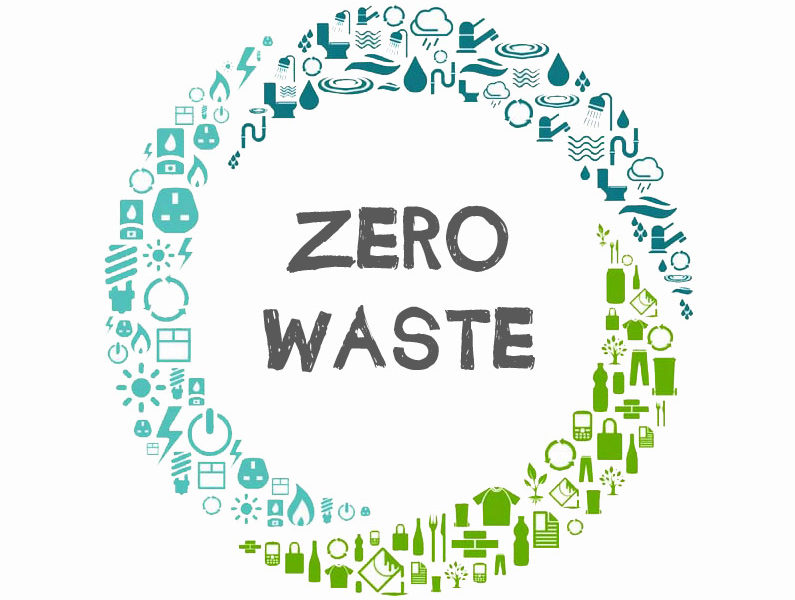Reducing Waste as a College Student
January 31, 2018
When it comes to saving the planet, most people assume recycling to be the only answer. Although recycling does help, only about sixty to eighty percent of what you throw into recycling bins actually gets recycled (Stanford.com). What then can college students do to help the Earth? The answer is– reduce your waste.
The average American produces 4 1/2 pounds of waste per day; “Sixty five percent is from residences, while thirty five percent came from schools and commercial locations such as hospitals and business” (National Geographic). If you just incorporate some green alternatives into your daily life on the University of Wisconsin – La Crosse campus, you can lower that number and create a better future for not only yourself, but the future inhabitants of our planet.
The first thing that must go is plastic straws – “Each day, more than five hundred million plastic straws are used and discarded in the U.S alone” (Plastic Pollution Coalition). Many people do not know that single-use plastic straws cannot be recycled because they contain BPA and it takes two hundred years for a straw to decompose.
The next time you go out to eat, refuse a plastic straw and you will learn that living a straw-free life will in no way be detrimental to you. This practice goes a long way in lessening plastic usage.
The next culprit to the environment is plastic bags. These single-use bags cannot be recycled at your normal facility and require a different system and processing to be recycled into new materials. An alternative to plastic bags is investing in reusable bags to bring with you on your quick Target or Kwik Trip run. On a normal outing, the average family will accumulate fifteen plastic bags per shopping day (Conserving Now).
“Each year an estimated five hundred billion to one trillion plastic bags are consumed worldwide. The U.S goes through one billion shopping bags annually which costs four billion dollars to industries” (Conserving Now).
Investing in reusable bags is not only more practical and prove to be more durable for the common shopper, but it will reduce the five trillion pieces of plastic debris floating in the ocean (Ocean Crusaders).
Another wonderful alternative for living in residence halls and being greener is shampoo and co bars. These zero waste products are usually produced organically and used as a soap bar but on hair. They make showering more efficient and faster while cutting down on your plastic bottle waste for shower needs. Lush, an organic beauty store, as well as many other companies provide these bars at little cost.
Reusable water and coffee cups are a go-to in college life for the amounts of each product the average student consumes. Every time you go to Einstein’s, Murphy’s Mug or Starbucks you are using a single-serve cup that will end up in a landfill and take twenty years to decompose (Boston Globe).
This same theory applies to single-use water bottles. Using water bottles is not purer than tap water, and you can save resources by drinking from glasses or reusable water bottles when you are out (One Green Planet). Every minute, one million plastic water bottles are bought around the world; this number will jump by twenty one percent by 2021 (The Guardian).
The Ban the Bottle campaign reports, “Colleges and Universities have been known to consume more plastic bottles annually than most other organizations.” Many colleges are promoting “Take Back the Tap” in which they encourage students and faculty to end their plastic usage of bottles and coffee cups and invest in reusable ones. UW schools who have pledged to this mission include Stevens Point and Madison. Even though UWL is the most sustainable UW system campus, they have not pledged to this mission.
Decreasing one’s use of plastic straws, plastic bags, and plastic containers while instituting reusable water bottles and coffee cups are four very easy steps you can take as a college student to reduce your global footprint. Living a more zero waste lifestyle is the answer to saving the Earth and UWL needs to step up and pledge to do so.







